App Tracking: Benefits, Importance, & Challenges
App tracking is essential for businesses as it provides crucial data on how users interact with their applications.
By tracking metrics such as user engagement, retention rates, and feature usage, companies can better understand their audience and meet their needs effectively.
This data-driven approach enhances the user experience and boosts customer satisfaction and loyalty.
The top three issues that app tracking can resolve for employees and employers,
Productivity Monitoring: App tracking allows employers to monitor how employees use their time on work-related apps.
It also enables managers to recognize high-performing employees and support those who need improvement.
Resource Optimization: Employers can identify underutilized resources by tracking app usage patterns.
The information can reallocate resources more effectively, ensuring employees can access the tools they need to perform their best.
Performance Evaluation: App tracking provides valuable data for performance evaluations.
By analyzing app usage data, employers can assess employee performance more objectively, considering factors such as productivity, time management, and adherence to company policies.
Try Buddy Punch For Free
Table of Contents
| What is App Tracking? |
| App tracking refers to monitoring and collecting data on how users interact with a mobile application. This includes tracking app usage, user engagement, retention rates, and in-app behaviours. App tracking utilizes analytics tools to gather this data, providing valuable insights into how users interact with the app. |
Why App Tracking Is Important For Businesses?

App tracking is important for businesses for several reasons.
Firstly, it provides valuable insights into user behavior, allowing businesses to understand how users interact with their apps.
This information can help companies make informed decisions about app design, features, and marketing strategies to enhance user engagement and satisfaction.
Secondly, app tracking enables businesses to measure the effectiveness of their app performance.
By tracking metrics such as app crashes, load times, and user retention rates, companies can identify and address any issues impacting user experience.
How Does App Tracking Work?
App tracking involves the utilization of analytics tools and technologies to gather and analyze user interactions within mobile applications.
These tools track various metrics such as user engagement, session duration, in-app purchases, and navigation patterns.
Through the collection of this data, businesses gain valuable insights into how users interact with their apps and identify areas for improvement.
One key aspect of app tracking revolves around the unique identifiers associated with each user’s device.
The Identifier for Advertisers (IDFA) is a unique identifier assigned to Apple devices, while the Advertising ID serves a similar purpose on Android devices.
These identifiers allow apps to track user activity across different apps and websites, providing valuable data for targeted advertising and personalized experiences.
With the introduction of iOS 14 and iPadOS 14, Apple implemented new privacy features that allow users to control app tracking.
Apps are now required to request permission from users to track their activity across other companies’ apps and websites.
This feature, known as App Tracking Transparency (ATT), gives users more control over their privacy and data usage.
Data brokers play a significant role in app tracking by aggregating and selling user data to advertisers and other third parties.
These brokers collect information from various sources, including mobile apps, websites, and offline sources, to create comprehensive profiles of individual users.
While data brokers provide valuable insights for targeted advertising, they also raise concerns about privacy and data security.
Additionally, app tracking involves techniques such as fingerprinting, which involves collecting unique device information to track users across apps and websites without relying on traditional identifiers.
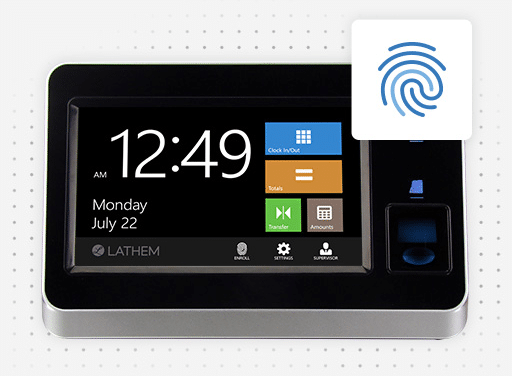
This method allows advertisers to target users based on their device characteristics, such as screen size, operating system version, and installed fonts.
When it comes to mobile app development, businesses are constantly seeking ways to enhance user engagement and monetization strategies.
The introduction of new features and functionalities in apps allows developers to stay competitive and meet the evolving needs of users.
Whether it’s integrating social media platforms for seamless sharing or implementing new advertising providers for monetization, staying abreast of industry trends is crucial for success.
Overall, app tracking plays a vital role in understanding user behavior and optimizing app performance.
However, it also raises important questions about privacy, data security, and user consent.
How Can Businesses Overcome Challenges in App Tracking?
Businesses can overcome challenges in-app tracking by implementing best practices and utilizing the right tools.
One common challenge is ensuring data accuracy and reliability. To address this, businesses should use reliable app tracking tools and regularly audit their data to ensure accuracy.
Another challenge is ensuring user privacy and compliance with regulations such as GDPR and CCPA.
Businesses can overcome this by implementing robust data protection measures, obtaining user consent for tracking, and anonymizing data whenever possible.
Can App Tracking Be Implemented Without Compromising User Privacy?

Yes, app tracking can be implemented without compromising user privacy. There are several ways to achieve this:
Anonymization: Ensure that any data collected for app tracking is anonymized so it cannot be traced back to individual users.
Transparency: Be transparent with users about what data is being collected and how it will be used. Provide clear opt-in/opt-out options for tracking.
Data Minimization: Collect only the necessary data for app tracking purposes and avoid collecting sensitive information.
Data Security: Implement robust security measures to protect the collected data from unauthorized access or breaches.
Compliance: Adhere to relevant privacy regulations, such as GDPR or CCPA, to ensure that app tracking practices are lawful and respect user privacy rights.
What Are Some Popular Time Tracking Apps Available For Both iOS and Android Devices?
Looking to enhance your time management with mobile time tracking apps? Look no further than Buddy Punch.
Buddy Punch is compatible with both iOS and Android devices, ensuring accessibility for all team members. Buddy Punch simplifies time tracking, offering an array of features designed to streamline your workflow.
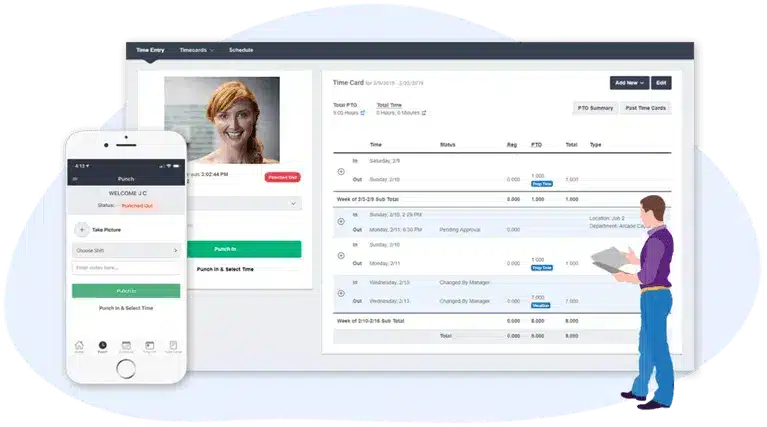
One standout feature is geofencing, which enables location tracking for mobile devices.
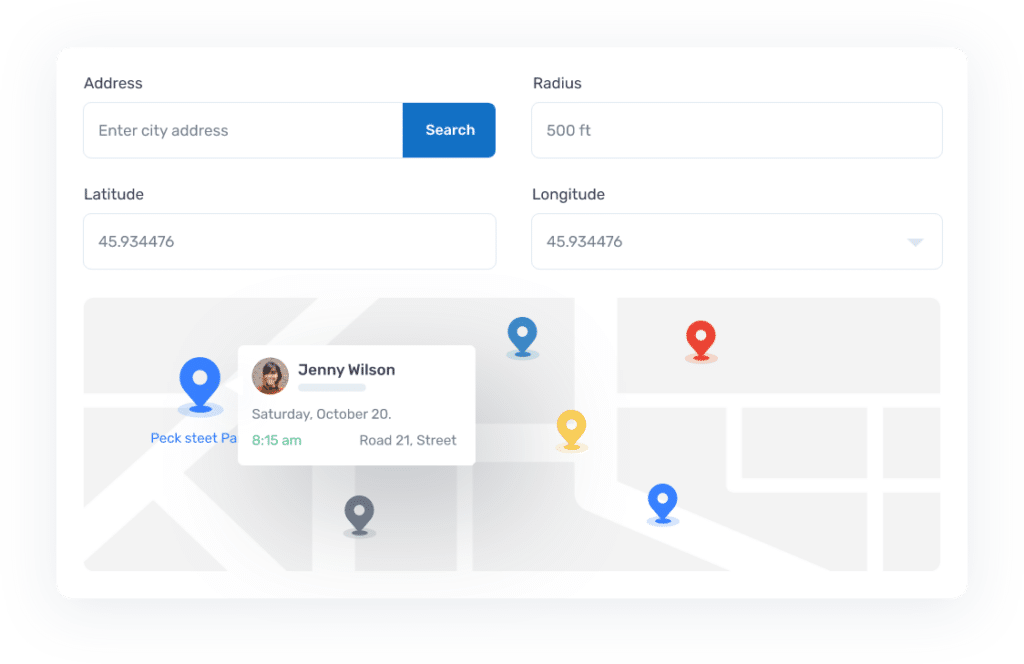
This allows you to monitor employee whereabouts and ensure they are where they need to be when clocking in or out.
Additionally, GPS tracking provides real-time insights into employee movements, enhancing accountability and efficiency.

With Buddy Punch, you can customize tracking features to suit your unique needs.
Whether you’re interested in tracking specific tasks, monitoring the amount of time spent on projects, or simply ensuring employees are adhering to their schedules, this app has you covered. Its comprehensive tracking system offers unparalleled visibility into your team’s activities.
Privacy concerns are addressed through solid security measures, ensuring that personal data remains protected at all times.
Buddy Punch prioritizes the security and confidentiality of sensitive information, giving you peace of mind as you manage your team’s time.
One particularly useful aspect of Buddy Punch is its suitability for employee time management.
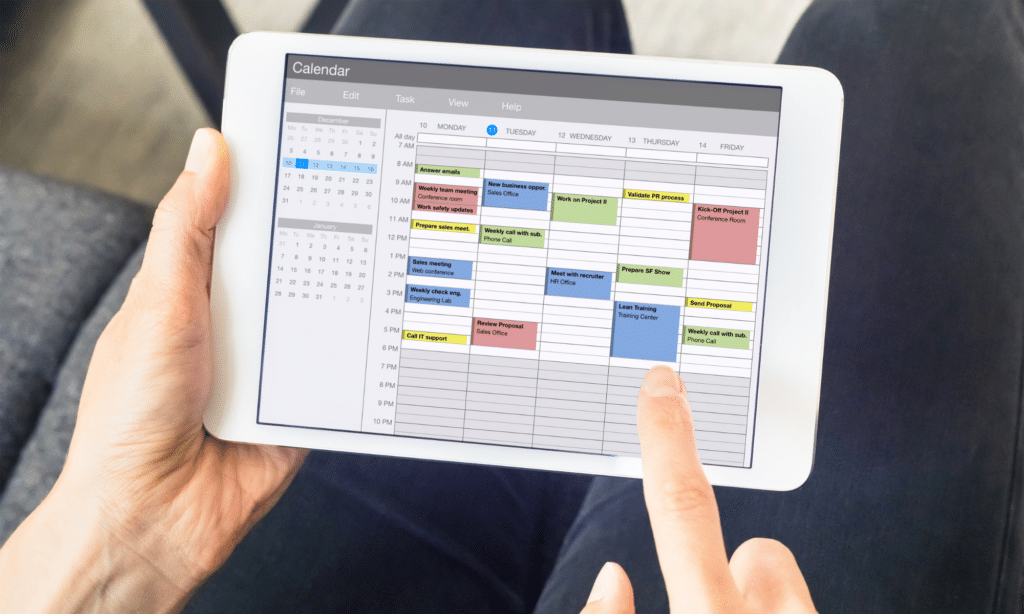
Mobile phone tracking apps for time tracking are increasingly popular for monitoring employee performance, and Buddy Punch stands out as a reliable option.
By providing detailed timesheets and analytics, this app empowers managers to make informed decisions about resource allocation and project management.
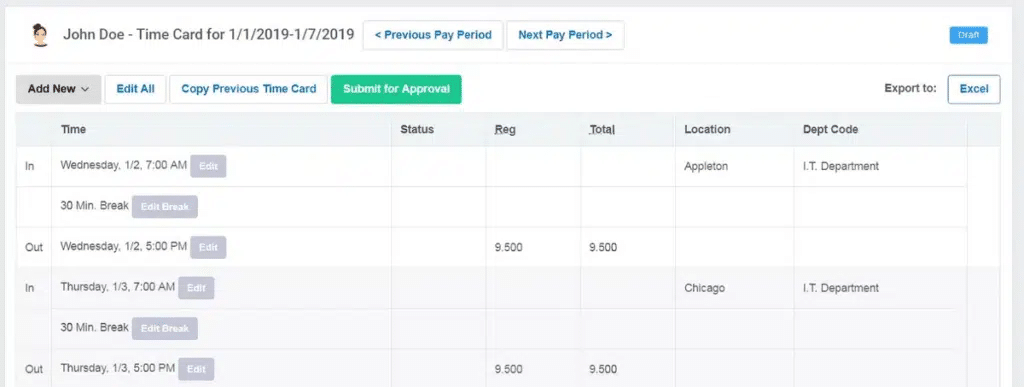
In today’s work environment, where remote work is increasingly common, effective time tracking software is essential.
Buddy Punch offers a seamless solution for remote teams, enabling employees to clock in and out from anywhere with ease.
Its user-friendly interface makes it simple for team members to log their hours accurately, ensuring transparency and accountability.
With Buddy Punch, you can take control of your time management and optimize your team’s productivity.
Say goodbye to manual timesheets and cumbersome tracking methods, and embrace a modern solution tailored to your needs.
Try Buddy Punch today and experience the difference it can make in your workflow.
Is Buddy Punch Worth It?
Buddy Punch offers tracking applications and timesheet templates for efficient time management.
With its tracker app, employees can log their hours accurately using GPS location and check-ins.
The cell phone app offers convenience for on-the-go tracking.
Moreover, its automation streamlines processes, enhancing profitability while reducing hassle.
Decision-making becomes more informed with real-time data insights.
Overall, Buddy Punch proves to be a valuable tool for businesses aiming to optimize workforce management and maximize productivity.
So, is it worth it?
Absolutely!
Try Buddy Punch for Free
Ready to give Buddy Punch a try?
For free trial, no credit card required.
If you feel that Buddy Punch might be the right fit for your business, sign up for a 14 day free trial (no credit card needed). You can also book a one-on-one demo, or view a pre-recorded demo video.
Benefits Of App Tracking
Following are the benefit sof App tracking:
1. Personalized User Experience
Personalization can increase user retention and loyalty, as users are likelier to continue using an app with relevant and valuable content.
By tracking user behaviour and preferences within the app, businesses can tailor the app experience to meet individual users’ specific needs and interests.
2. Improved App Performance
App tracking offers the benefit of improved app performance. By tracking metrics such as app crashes, load times, and user interactions, businesses can identify and address performance issues promptly.
This leads to a more stable and responsive app, providing users a better overall experience.
3. Enhanced Marketing Strategies
App tracking can significantly enhance marketing strategies for businesses.
By tracking metrics such as app downloads, in-app purchases, and user engagement, companies can assess the most successful marketing strategies.
4. Security And Fraud Prevention
By tracking user behaviour and interactions, businesses can detect unusual or suspicious activity that may indicate fraudulent behaviour, such as unauthorized access attempts or unique transaction patterns.
Companies can identify potential weaknesses and take proactive measures to strengthen security and protect user data.
5. Continuous Improvement
By tracking user behavior and app performance metrics, businesses can identify areas for enhancement and make data-driven decisions to improve the app.
By analyzing how users interact with different features, businesses can prioritize enhancements that align with user preferences and needs, ensuring that the app remains relevant
6. Performance Monitoring
By setting benchmarks for performance metrics and continuously monitoring them, businesses can proactively address performance issues and provide users with a seamless and reliable app experience.
Companies can identify trends and adjust to improve user performance by analysing performance data across various devices.
7. Competitive Advantage
App tracking enables businesses to stay ahead of competitors by continuously improving their app based on real-time data.
By tracking user behaviour and app performance, companies can gain valuable insights into user preferences and market trends,
Future Trends In App Tracking

Following are the future trends in App tracking:
1. Rise Of Privacy-Preserving Technologies
Businesses are increasingly turning to technologies that allow for effective app tracking while protecting user data.
This will enable businesses to collect valuable insights without compromising user privacy.
2. Shift Towards First-Party Data Tracking
First-party data tracking also enables businesses to maintain greater control over their data and comply with privacy regulations more easily.
This allows companies to collect more accurate and relevant data, leading to better insights into user behaviour and preferences.
3. Innovations In Cross-Device Tracking
Cross-device tracking uses probabilistic matching techniques, which analyze data points such as IP addresses, device IDs, and browsing behaviour to link user activity across devices.
The approach helps businesses create a unified view of user behaviour, leading to more personalized and targeted app experiences.
What Are The Risks Of App Tracking?
While offering numerous benefits, app tracking also comes with risks that businesses and users should be aware of.
App tracking involves collecting user data, which can include sensitive information. If this data is not handled securely, it can lead to privacy breaches and unauthorized access to personal information.
How Can I Protect My Privacy From App Tracking?

To protect your privacy from app tracking, you can take several steps:
Review App Permissions: Before downloading any app, scrutinize the permissions it requests.
Only allow access to information essential for the app’s functionality. This step ensures that apps don’t unnecessarily track your data without your consent.
Adjust Privacy Settings: Keep a regular check on your device’s privacy settings.
By doing so, you can limit the amount of data that apps can access.
This proactive approach puts you in control of your privacy settings, safeguarding your personal information from unauthorized access.
Use Privacy-Focused Tools: Incorporate privacy-focused browsers and search engines into your digital routine.
These tools prioritize user privacy by employing advanced encryption techniques and blocking trackers that monitor your online behavior.
By utilizing such tools, you can enhance your online privacy and minimize the risk of being tracked by apps.
Use Ad Blockers: Install ad blockers on your devices to prevent websites and apps from tracking your online activities for targeted advertising.
Ad blockers work by blocking scripts and cookies used by advertisers to track users’ browsing behavior.
By blocking these trackers, ad blockers help maintain your anonymity online and protect your privacy from intrusive tracking practices.
Review and Delete Unnecessary Apps: Regularly assess the apps installed on your devices and delete those that you no longer use or need. Unnecessary apps may continue to collect data about you, even when you’re not actively using them.
By removing these apps, you can reduce the amount of data collected about you and minimize the potential for app tracking.
Nowadays, protecting your privacy from app tracking is paramount.
By following these steps and being proactive about managing your privacy settings, you can take control of your digital footprint and safeguard your personal information from unauthorized access and misuse.
How Do Big Companies Benefit From App Tracking?
Companies benefit from app tracking in several ways:
User Behavior Insights: App tracking provides valuable insights into how users interact with their apps.
This data helps companies understand user preferences, allowing them to make informed decisions about app design, features, and marketing strategies.
Performance Optimization: App tracking helps companies identify and address performance issues in their apps.
Companies can improve app performance by tracking metrics such as app crashes, load times, and user engagement, leading to a better user experience.
Personalized Experiences: App tracking enables companies to personalize the app experience for users.
By tracking user behaviour, companies can offer customised recommendations, content, and offers, increasing user engagement and satisfaction.
Marketing Effectiveness: App tracking allows companies to track the effectiveness of their marketing efforts.
By analyzing app tracking data, companies can assess the success of their marketing campaigns and make adjustments to improve ROI.
FAQs
What is app tracking transparency (ATT) and how does it affect iOS users?
App Tracking Transparency, or ATT, is a privacy feature introduced by Apple in iOS 14.5. It empowers iPhone users with control over their data by requiring apps to request permission before tracking their activity across other companies’ apps and websites.
Through a pop-up notification, users can choose to allow or deny tracking, enhancing their privacy and security while using mobile apps on iOS devices.
What measures has Apple implemented to enhance user privacy on iPhones through app tracking transparency?
Apple has taken significant steps to bolster user privacy on iPhones through app tracking transparency. With iOS 14.5 and later versions,
Apple requires app developers to obtain explicit permission from users to track their activity across apps and websites owned by other companies. This proactive approach puts users in control of their data, ensuring transparency and fostering trust in the Apple ecosystem.
How do Android devices compare to iPhones in terms of app tracking transparency and user privacy?
While Android devices offer a range of privacy settings and controls, they differ from iPhones in terms of app tracking transparency. Unlike Apple’s strict requirements, Android devices may vary in their implementation of privacy features, depending on the manufacturer and version of the operating system.
However, both platforms prioritize user privacy and offer tools to manage app permissions and data tracking.
What challenges do developers face in adapting to Apple’s app tracking transparency requirements?
Developers encounter various challenges in adapting to Apple’s app tracking transparency requirements. These include adjusting tracking practices to comply with ATT, educating users about the importance of tracking permissions, and maintaining functionality while respecting user privacy preferences.
Additionally, developers must navigate changes in advertising strategies and attribution methods to adapt to the evolving privacy landscape on iOS devices.
How have iPhone apps adjusted their tracking practices in response to Apple’s app tracking transparency policies?
iPhone apps have made significant adjustments to their tracking practices in response to Apple’s app tracking transparency policies. Many apps have implemented new opt-in mechanisms to request permission for tracking, providing users with clear explanations of how their data will be used.
Some apps have also diversified their advertising strategies, focusing on contextual targeting and first-party data collection to maintain effectiveness while respecting user privacy preferences.
Final Thoughts,
App tracking, a vital aspect in the app store ecosystem, allows apps to request to track user activity, providing valuable insights to businesses.
SDK integration facilitates seamless tracking across iOS, tvOS, and macOS platforms, utilizing the advertising identifier.
Last year, with iOS 17’s release, Apple introduced significant privacy features, including the option to ask apps not to track.
End users, primarily English speakers, play a crucial role in this ecosystem, as they navigate privacy settings and permissions.
Amidst these advancements, businesses launching a new app must prioritize transparency and user consent to foster trust. Moreover, users must remain vigilant, employing privacy-focused tools to safeguard their data.
